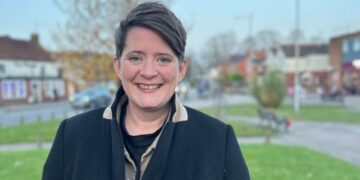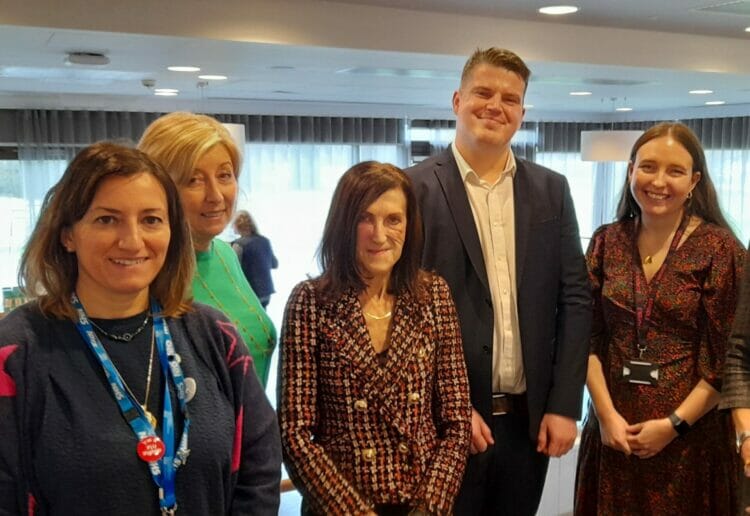READING’S child services authority has announced the further roll out of a mental health service for children and young adults in Reading.
Brighter Futures for Children has announced that it is expanding its mental health provision service to more schools and colleges in an effort to offer more young people support.
The service, currently in place in west Reading schools, provides mental health support to those with emerging or low-intensity mental health issues to avoid those issues becoming worse.
This includes helping with low mood, anxiety, emotional regulation, as well as those experiencing grief, academic pressure, and abuse.
It launched the expanded service in September last year, with a launch event taking place at the University of Reading in January.
The event saw speakers from a number of senior team members at Brighter Futures for Children, as well as major stakeholders, including representatives from the Department of Education.
Dr Alec de Sausmarez, senior educational psychologist in the Mental Health Support Team, said: “Mental health services meet the needs of children who are already quite distressed.
“The mental health support team provides guided self help to stop children getting to that level.
“So when their mental health needs are low or emerging we come in and work with them one to one and give them skills really to help out.”
He explained that the team helps young people with self empowerment and guided self-help, which will give those kids skills– manage worries or low mood, for example– and hopefully what that’ll do is stop the mental health need becoming a real need.
“They can get that help and then use them whenever they need to throughout their life.”
The present roll-out will see services which are already in place in west Reading extended to schools in south and central Reading.
“If a child is in any one of our linked schools, anybody can do a referral on their behalf, and those in Years 13 or above can even refer themselves.
“Anyone can make a referral for any child, including schools or other professionals, and then managers at the team will look at the case application.
“From there, we can request more information or add it to the waiting list.”
Referrals can be made via Brighter Futures for Children’s website, which also provides a number of resources for caregivers and young people.
Charlotte Morgan, head of campus – student experience at Reading College, part of Activate Learning, said that mental health was a “huge” concern for educational institutions, and that the move to expand the services would be “very welcome.”
“Schools and colleges are having to do more to support young people with mental ill health than ever before.
“We know there are greater numbers of young people who are experiencing ill mental health and greater demand on our local mental health services.”
Ms Morgan, who is undertaking the Senior Mental Health Lead course at the University of Reading for Activate Learning, continued: “If we’re looking at statistics of one in six, or one in four, that’s a lot of people to support.
“So for us, being able to engage with the MHST has allowed us to offer more enhanced support for our students and also for our staff.”
Carla Molloy, intervention progress coach at Activate Learning, said that the implementation “changes the perspective of everyone involved.
“It’s very important for teachers to be able to spot the signs of ill mental health and know where to signpost students to.
“It opens it up to more people to do training around it, and more people are open to helping people with it.
“Which means in turn people are more honest with each other about their own mental health, too.”
Ms Morgan agreed: “It’s really helped to destigmatise mental health support, allowing everyone to be also as involved as they are comfortable with.
“It’s really important to acknowledge that some staff won’t want to necessarily be involved in many discussions around mental health, which could be because of their own personal experiences or family experiences.
“So I think the MHST really allows institutions to have this conversation in the same way that we do about safeguarding.”
On how the service has already been received following its inception in west Reading, Dr de Sausmarez said: “We ask young people how they think went, and we get really consistent positive feedback from them and from parents and teachers.
“We also see really consistent drops in levels of worry and low mood, as well as working with the BOB ICB and Brighter Futures for Children.”
For more information about the service and which schools have access to it, visit: brighterfuturesforchildren.org/MHST.
























